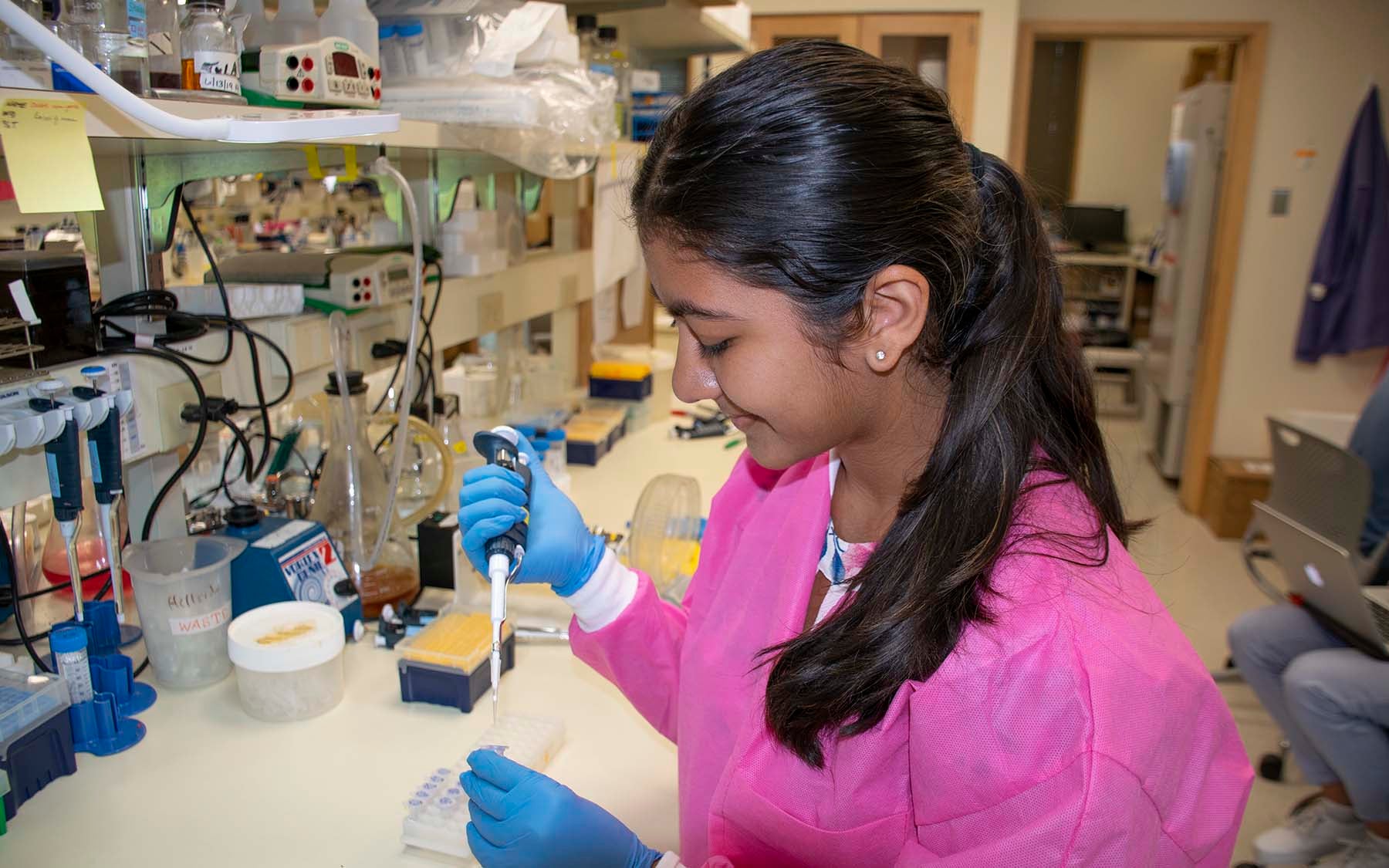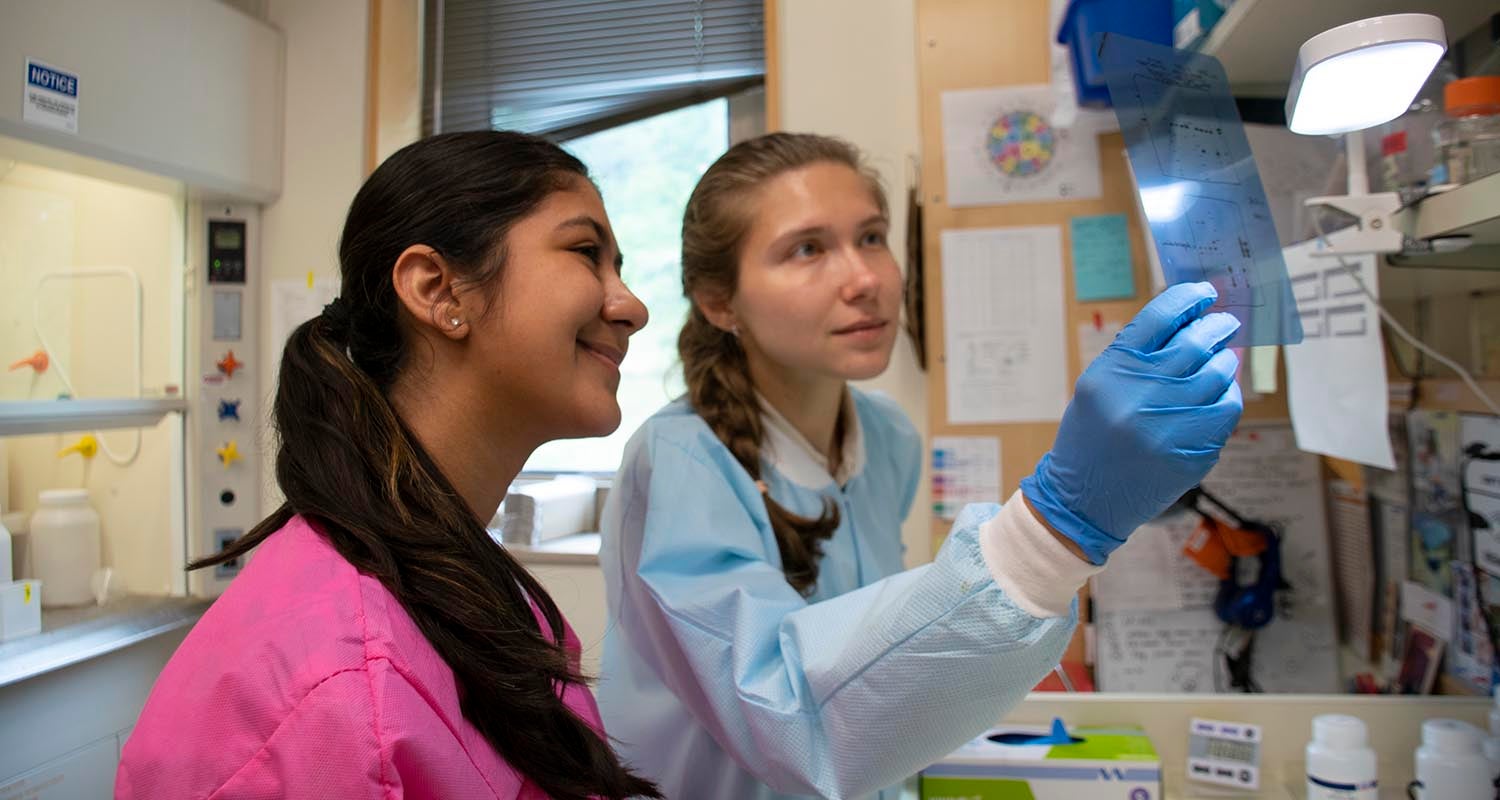Research holds a prominent role because it helps us find and develop new cures or methods, and possible causes, to increase survival rates. I have been given the opportunity of furthering my passion for research by interning this summer at Cold Spring Harbor Laboratory and being mentored by Sofya Polyanskaya, a Ph.D. student, who taught me everything from running an agarose gel to utilizing CRISPR-Cas9 to perform targeted gene editing in leukemia cells. I am working with human acute myeloid leukemia (AML) cells derived from real patients, which makes my research all the more relevant for the context of human disease.
This has been such a unique learning experience, especially since my background consists mainly of high school biology and chemistry classes. When I had a meeting with Chris Vakoc, MD, Ph.D., the PI of the Vakoc laboratory, I recollect his amazement that the same genetic code governs all living organisms, from trees to humans. The endless mysteries of nature and curiosity drives him to search for new questions and work toward new discoveries.
Along the famous lines of the Star Trek franchise “explore strange new worlds… and go where no one has gone before,” Chris described how he is motivated by his urge to discover the unknown and to find out something that no one else knows. For my part, I am motivated by my personal fight with cancer as well as exploring new horizons.
I have always been curious as to how leukemia cells can multiply so rapidly and become so powerful. During my internship, my mentor Sofya has helped me conduct a project regarding specific genes editing on AML cells proliferation. In that process, we turn off certain genes we presume important to AML cells’ survival and see whether these cells die as a result. We hypothesized that certain mitotic kinases, enzymes that are essential in the process of cell division, could present attractive drug targets for cancer therapy.
For my project, I set out to assess AML cells’ dependency on these kinases. Using the CRISPR-Cas9 system, we were able to introduce double-strand breaks into the cancer cell genome at specific sequences. These double-strand breaks are often repaired inaccurately, which often leads to a premature stop signal for gene transcription. As a result, the correct protein cannot be synthesized. Therefore, the gene is turned off and can no longer perform its function. If AML cells are truly dependent on our genes of interest, they will fail to proliferate upon turning off these genes.
Cancer research requires creativity, patience, and persistence, and this research holds a vital role in the future of medicine and science. It has already helped save lives and will continue to do so. Being exposed to the process of scientific research during my time at the Lab motivates me to want to come back and continue exploring and learning. Working in a cancer research lab has provided me with so much knowledge and insight into research, as well as a possible future career pathway for which I am beyond grateful for.

